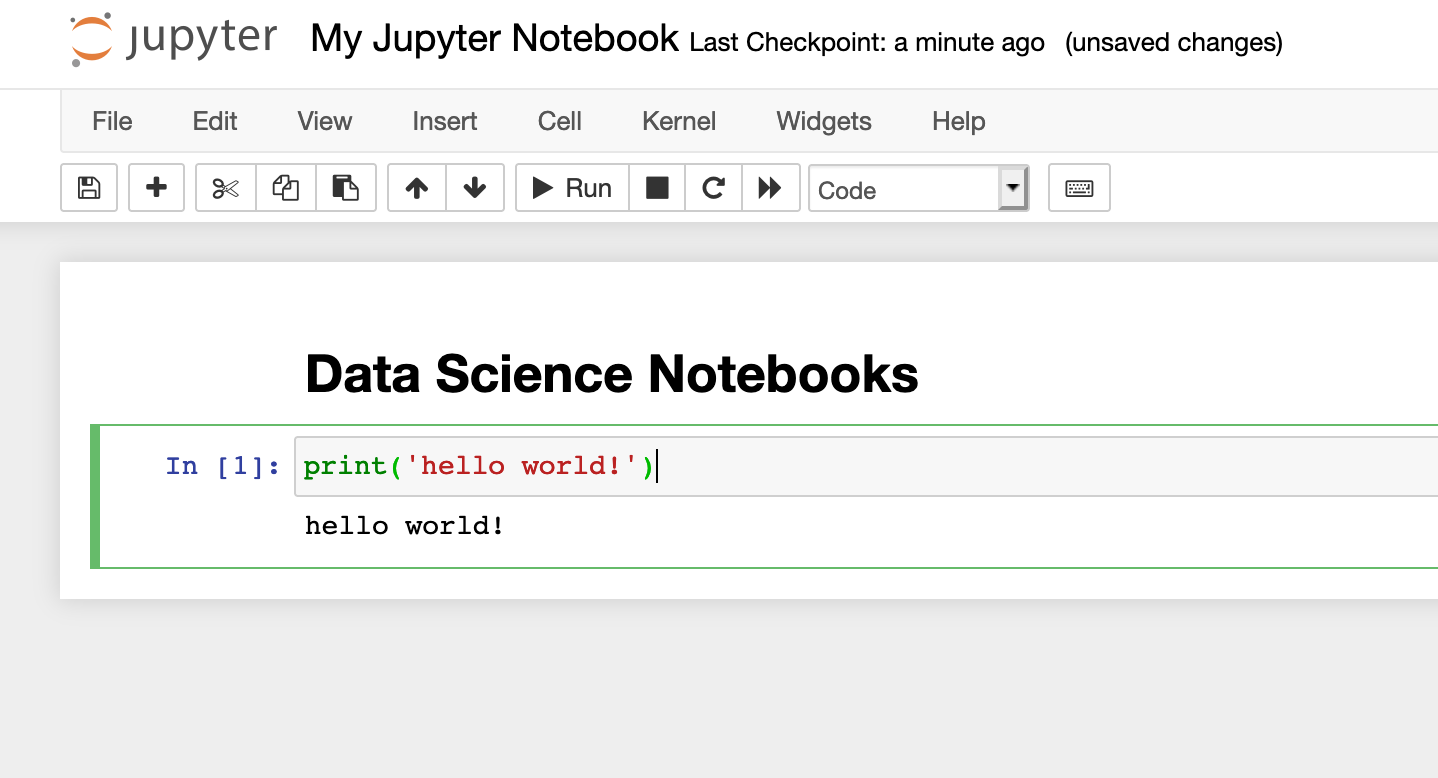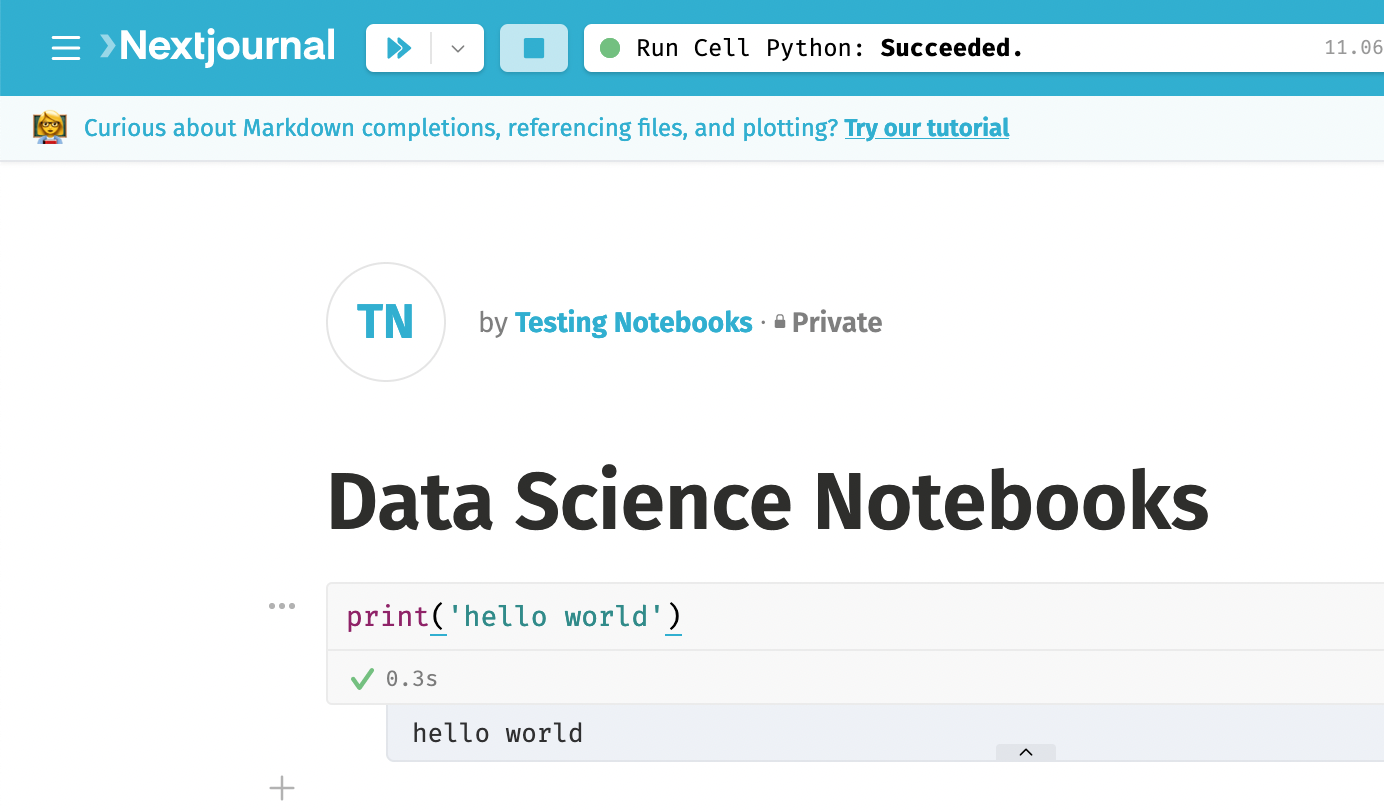

Jupyter
Project Jupyter exists to develop open-source software, open-standards, and services for interactive computing across dozens of programming languages. There's a number of vendors offering Jupyter notebooks as a managed service.

Comparing two data science notebooks.





